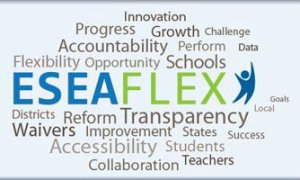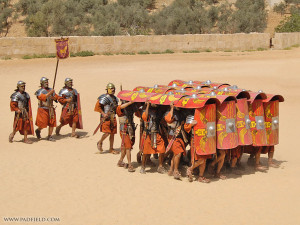I only recently heard of “CREATE” and if I’d not really been paying attention, I would of just glossed over it. However, knowing the Common Core Machine has so many overreaching parts, it’s worth a look.

CREATE:
The acronym for “Consortium for Research on Educational Assessment and Teaching Effectiveness”. Their goals? Improving student outcomes aka ‘student learning, development, and achievement in PK-12 schools, institutes of higher education, and other educational settings.‘
The group is a members only, with paid dues, elected officers, and this year, a more global agenda. They are a part of the JCSEE (Joint Committee on Standards for Educational Evaluation).
The current President of the CREATE team is a professor from Australia who recently spent much time here in NC, at least according to his letter to the rest of the group. See this excerpt from the 2014 newsletter, “We all are part of many organizations that overlap in interest. We hope that CREATE provides you a place to continue to evolve your teaching, professional development and/or research around classroom and school effectiveness.
My last few years in North Carolina and Louisiana have demonstrated to me that
we have some work to do to help those who make the policy decisions about
what works for learning and to “get” what research-based best practice is. As
the Common Core evolves it may be neither if we don’t use the knowledge base
to guide us.” Access the entire letter by clicking: http://nebula.wsimg.com/44c8325e0a574501948b41c5f59f5850?AccessKeyId=CB845348BE9F79999C38&disposition=0&alloworigin=1 NOTE: to access even more archived CREATE newsletter issues,
http://www.createconference.org/publications.html
Where I found JCSEE and CREATE connecting:
From a 2010 CREATE newsletter, the following excerpt: “CREATE has offered invaluable networking opportunities to professionals across the country since its inception over two decades ago. It continues in that tradition. CREATE, as a member organization of the Joint Committee for Standards in Educational Evaluation (JCSEE), involves its membership directly in the important work of development and revision of three sets of standards issued by the JCSEE – student, personnel, and program. This year, the emphasis will be on the revision of the current Student Evaluation Standards. A core Task Force of writers representing the United States and Canada has begun the arduous task of totally revising the standards for student evaluation to reflect more appropriately the process of assessment of student learning by teachers in the classroom. Rather than tweaking current standards, this Task Force considered radical changes to the format, language, and audience of these standards.”
JCSEE on its own:
Begun in 1975, it is currently housed in the University of Iowa’s Center of Evaluation and Assessment (ever hear of the Iowa Basic Skills Test or the ACT? They both were created at the University of Iowa, but that’s another article altogether). Among JCSEE’s sponsors are CREATE, the NEA, the CCSSO, the National School Boards Association and many others, including some from Canada. (see the entire list: http://www.jcsee.org/sponsoring-organizations) Considering the JCSEE has these known pro CCSS supporters AND that is is accredited by the ANSI (American National Standards Institute). JCSEE’s sponsors are those organizations which align with the vision, work, and standards set. See the latest operational guide, complete with how educational standards are set, which groups get to decide, etc. Operating-Procedures-May-1-2014-fnl
Since assessments are SO vital to the existence of the flexibility waivers up for renewal, the SBAC, PARCC, and other CCSS related components, we REALLY need to look into the next website page, that of the How the Assessment Standards are presented in a free form (but know they really want you to buy the complete book), http://www.jcsee.org/program-evaluation-standards-statements
Two other related groups to CREATE:
First, “Learning Forward”, “The Professional Learning Association.” Their Common Core Publications List is quite large, so I’ve given you the link to the entire page where you can see the state workbooks. Most of their Policy briefs are titled “Meet the Promise..”. See for yourselves, http://learningforward.org/publications/implementing-common-core#.VHyjjzHF-hQ
You might find it interesting that “LF” was begun in 1969 as a way for school staff developers to connect. You’ll also want to note that Linda Darling-Hammond is among the National Advisors. (Does anyone need a reminder of how into CCSS she is?)
Then, there’s “AERA”, The American Educational Research Association(http://www.aera.net/). They’ve been around since 1916 and are “concerned with improving the educational process by encouraging scholarly inquiry related to education and evaluation and by promoting the dissemination and practical application of research results. AERA’s more than 25,000 members are faculty, researchers, graduate students, and other distinguished professionals with rich and diverse expertise in education research. They work in a range of settings from universities and other academic institutions to research institutes, federal and state agencies, school systems, testing companies, and nonprofit organizations. Based on their research, they produce and disseminate knowledge, refine methods and measures, and stimulate translation and practical application of research results. AERA is international in scope. Nearly 5% of members, representing over 85 countries, reside outside the United States. Over 28% of AERA members are students—approximately 6,500 graduate students and 600 undergraduate students. Over 74% of AERA members report that education is their primary discipline. Other disciplines represented by AERA members include psychology, statistics, sociology, history, economics, philosophy, anthropology, and political science.”
You’ll want to note that not only does this organization have a finger on education matters, but government AND social justice. They are working with the National Science Foundation as well (huge funders for CCSS, STEM, and other fed led ed programs). See all their research projects by genre, http://www.aera.net/EducationResearch/AERAEducationResearch/tabid/15727/Default.aspx
Finally, do any of these groups connect to the education waivers?
With the inter-connectedness of the CCSSO (Council of Chief State School Officers) to CREATE and JCSEE, I would have to answer ‘yes’. It appears all of the above are tied to the waivers. Especially when you consider HOW many of these are involved in the assessment end of education. We know the Flexibility waivers will heavily restrict states via not only student outcome based assessments, but the teachers and principals as well. With that said, what does the CCSSO have on the ESEA Flexibility Waivers? More than you can shake a stick at.
CCSSO:
I found their ESEA Flexibility information under the ‘Educator Effectiveness’ page. (see: http://scee.groupsite.com/page/esea-flexibility-toolkit) There you’ll find ‘fact sheets’, links the the US Dept of Ed, you’ll be able to see which state is up to what, and you’ll get the language resources to understand HOW your state worded their applications for the flexibility/opportunity we were promised (see yesterday’s post). For instance, if you wanted to see how a state gave an visual graphic for “Theory of Action” in applying for a flexibility waiver, you would get a downloadable guide from 2012. It’s complete with several colorful shapes, sizes, and information. Then, after the states examples, CCSSO has many measures for educators to have to adhere to; at least that’s what it looked like to me.
See the “Theory of Action” examples: THEORY OF ACTION Examples
Another interesting set of examples the CCSSO has are those which impact the ‘stakeholders’ in all this.. You know, the local businesses, the legislators, civic groups, non profits, advocacy groups, all sprinkled in with the REAL stakeholders..the schools, students, staffers, and districts. Not as much information will be available here and you will have to click on each of the states which provided information separately. Since I didn’t see NC, I chose a neighboring state to see what was available. On pages 10 and 11 of their ESEA Waiver, you can see the stakeholders involved in this application. It is from a couple of years ago, so it could be some stakeholders have been alerted to the truth and walked away. http://www2.ed.gov/policy/eseaflex/ga.pdf
Why I share this is so you can see it isn’t only education minded folks involved, but somehow I think I knew you already knew that. What we CAN do with this type of information is USE it. Remember, as we found out yesterday, those in charge are assuming we won’t find this information out in time to do something.



2 thoughts on “FTF: “Create”, “Jcsee”, and the rest of the gang”